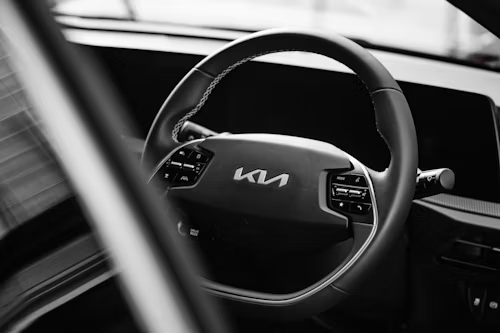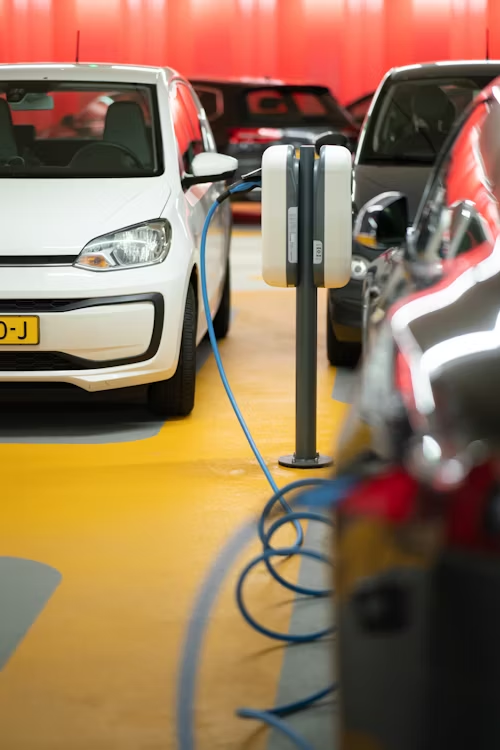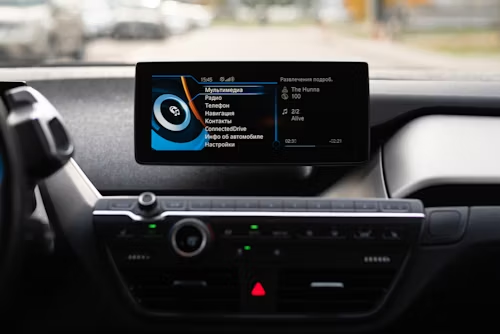How Smart Car Technology Improves Driving Safety

Smart car technology is revolutionizing the way we drive, making roads safer and reducing the risk of accidents. From advanced driver assistance systems (ADAS) to AI-powered safety features, these innovations are enhancing vehicle safety for drivers and passengers alike.
1. Advanced Driver Assistance Systems (ADAS)
ADAS includes features that assist drivers in making safer decisions on the road. These systems use cameras, sensors, and AI to prevent collisions and enhance awareness.
- Key Features: Lane departure warnings, adaptive cruise control, automatic emergency braking.
- Recommended Model: Mobileye 630 – real-time alerts for potential collisions.
2. AI-Powered Collision Avoidance
AI-driven collision avoidance systems analyze road conditions and respond proactively to potential hazards.
- Why It Matters: Reduces human error, enhances reaction times, prevents accidents.
- Recommended Model: Tesla’s Autopilot – continuously learns and adapts to driving patterns.
3. Smart Blind Spot Detection
Blind spot detection systems alert drivers of vehicles in their blind spots, reducing side collisions.
- Key Benefits: Visual and audible alerts, automatic lane correction.
- Recommended Model: Garmin BC 40 – wireless blind spot monitoring.
4. Real-Time Road Condition Monitoring
Smart cars can assess road conditions and warn drivers of hazards like black ice, potholes, and traffic congestion.
- Best Features: AI-driven hazard detection, cloud-based alerts.
- Recommended Model: Nexar AI Dash Cam – road hazard alerts with real-time reporting.
5. Fatigue and Distraction Monitoring
Driver monitoring systems detect drowsiness and distractions, alerting drivers to stay focused.
- Why It’s Essential: Reduces risk of fatigue-related accidents, promotes alert driving.
- Recommended Model: Ridy AI – real-time facial recognition for driver monitoring.
6. Intelligent Traffic Sign Recognition
Smart cars use cameras to read traffic signs, ensuring drivers stay informed about speed limits and road warnings.
- Advantages: Improves compliance with road rules, enhances awareness.
- Recommended Model: Bosch TSR – AI-powered sign recognition.
7. Smart Parking Assistance
AI-assisted parking systems help drivers park safely in tight spaces with automated guidance.
- Best Features: 360-degree camera, self-parking assistance.
- Recommended Model: BMW Parking Assistant – autonomous parallel and perpendicular parking.
8. Connected Emergency Services
In the event of an accident, smart cars automatically notify emergency responders with location and impact details.
- Why It Matters: Reduces emergency response times, potentially saves lives.
- Recommended Model: OnStar Safety Services – automatic crash response.
9. AI-Enhanced Vehicle-to-Vehicle Communication
Smart vehicles communicate with other cars to anticipate traffic flow and prevent accidents.
- Benefits: Reduced congestion, enhanced accident prevention.
- Recommended Model: Audi Car-to-X – real-time traffic light information system.
10. Enhanced Night Vision Technology
Infrared night vision systems help drivers detect pedestrians and animals in low-light conditions.
- Key Benefits: Increases visibility, reduces nighttime accidents.
- Recommended Model: Mercedes-Benz Night View Assist – thermal imaging for nighttime driving.
Case Studies
Case Study 1: Volvo’s AI Safety Innovations
Volvo implemented AI-driven collision prevention, reducing accident rates by 35%. Read more
Case Study 2: Tesla’s Autopilot Impact
Research shows Tesla’s Autopilot reduced accident probability by 40% in vehicles equipped with its AI safety system. Learn more
Conclusion
Smart car technology is reshaping road safety, reducing accidents, and enhancing driving efficiency. As AI and connectivity continue to evolve, vehicles will become even safer. Explore more advancements at Smartcar Conversions.








